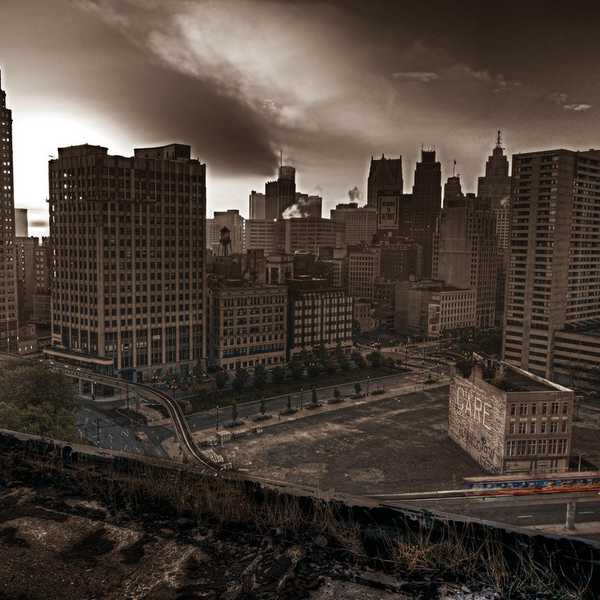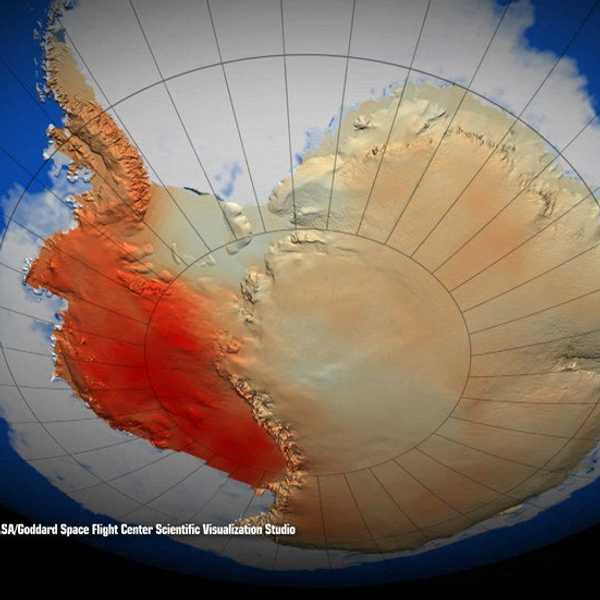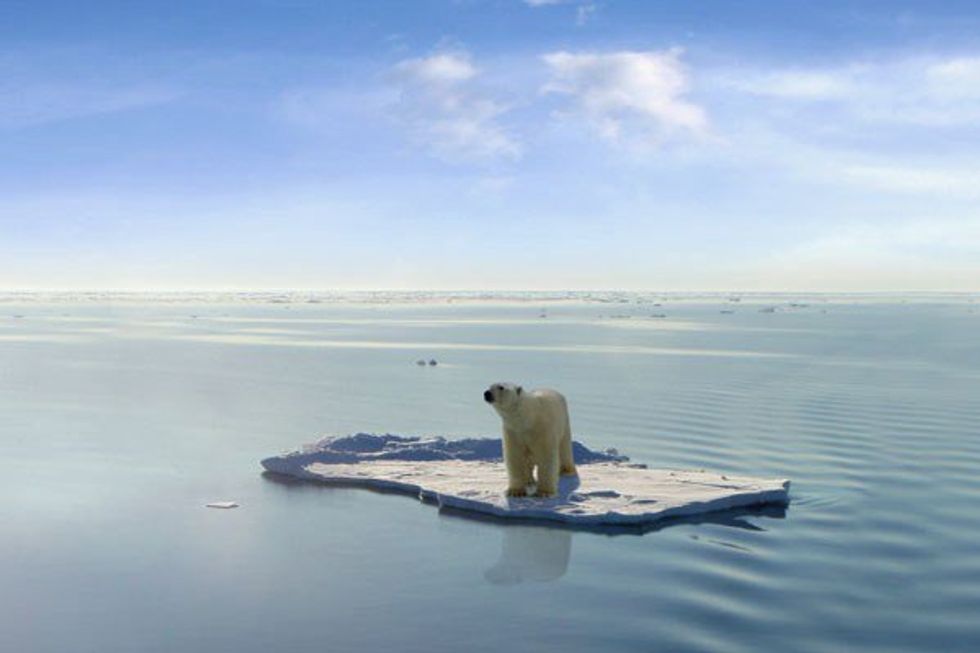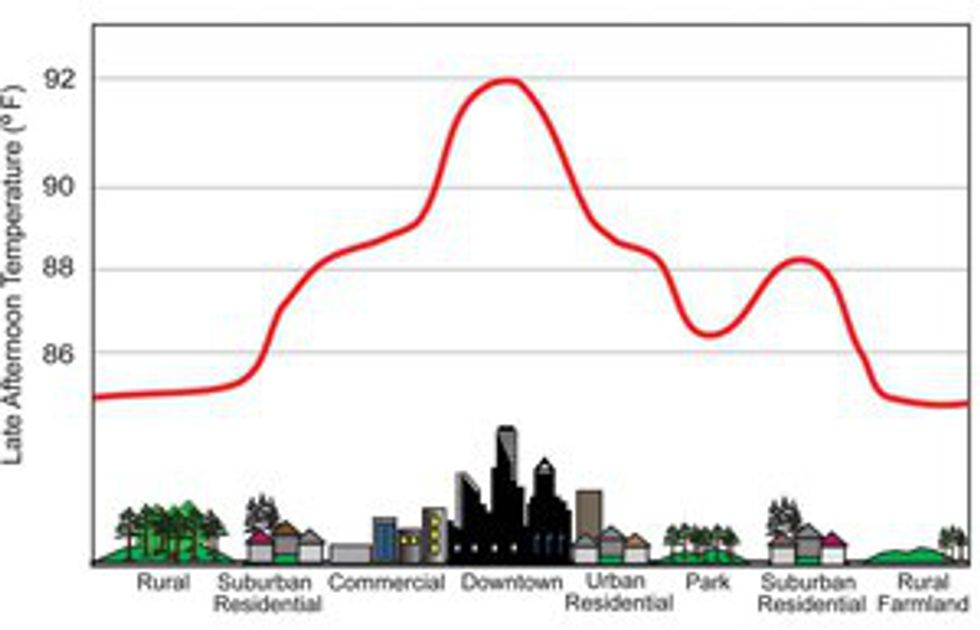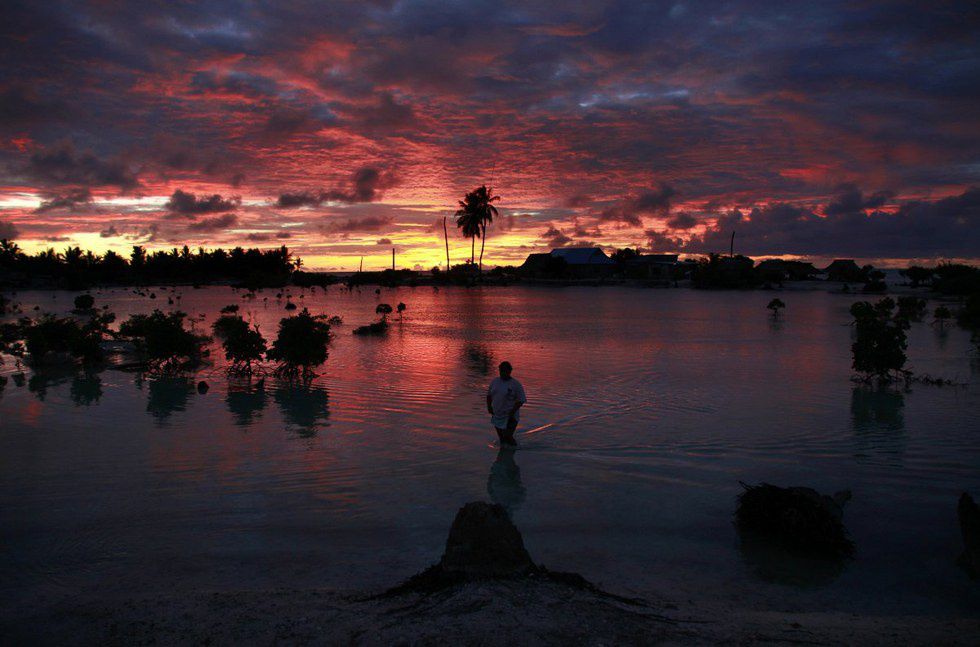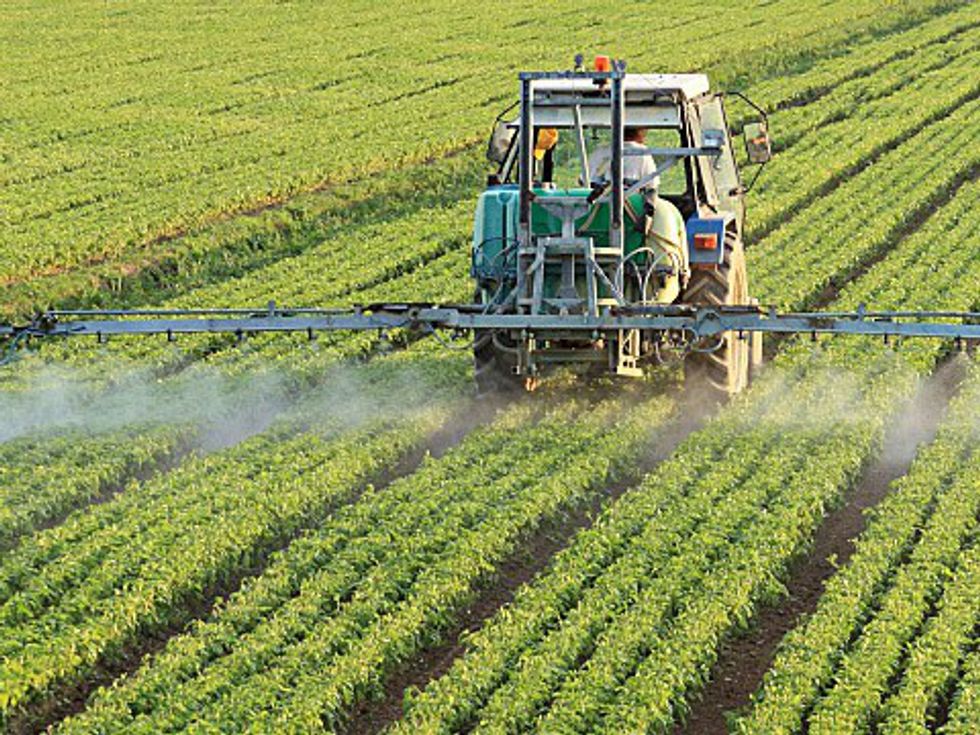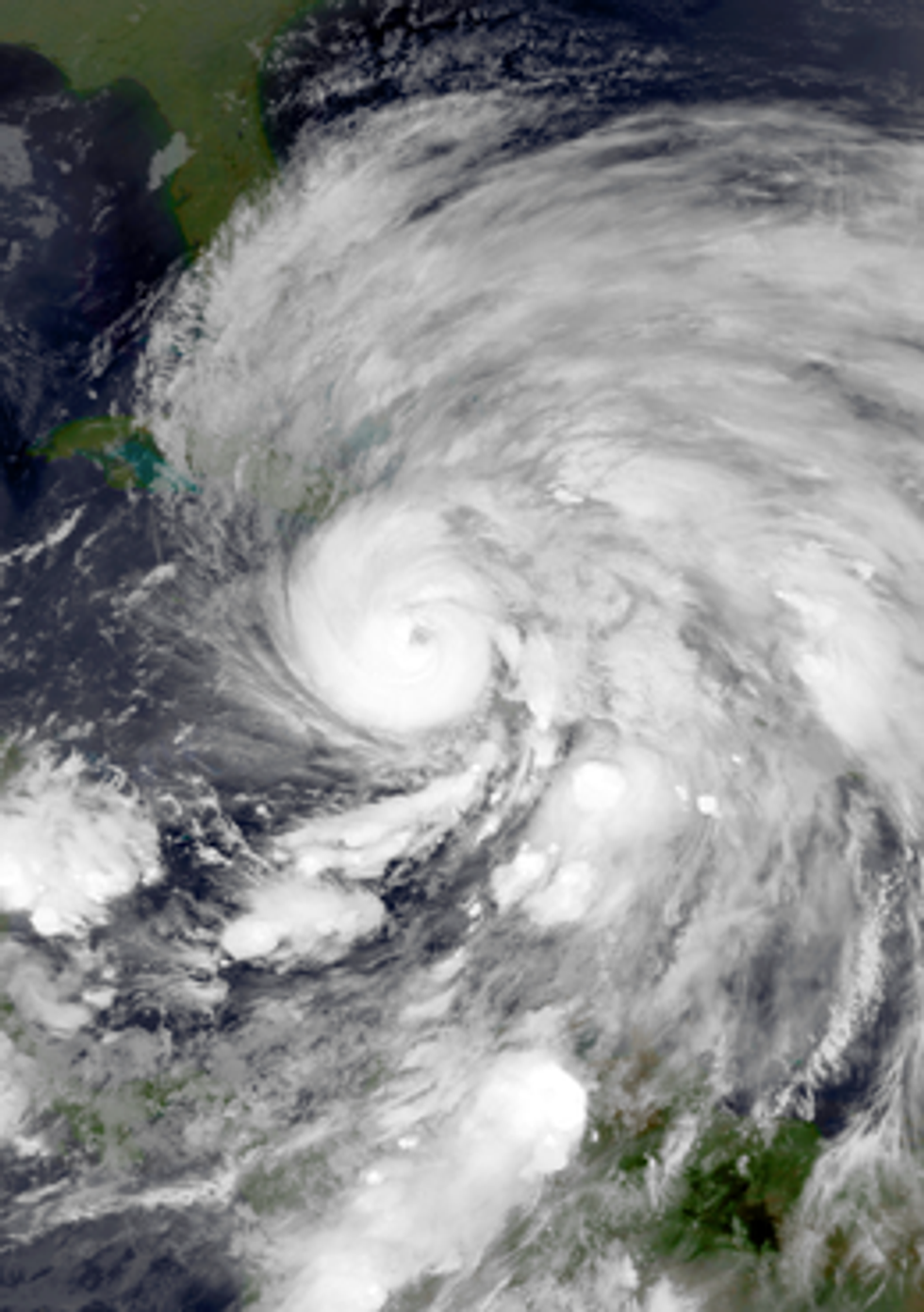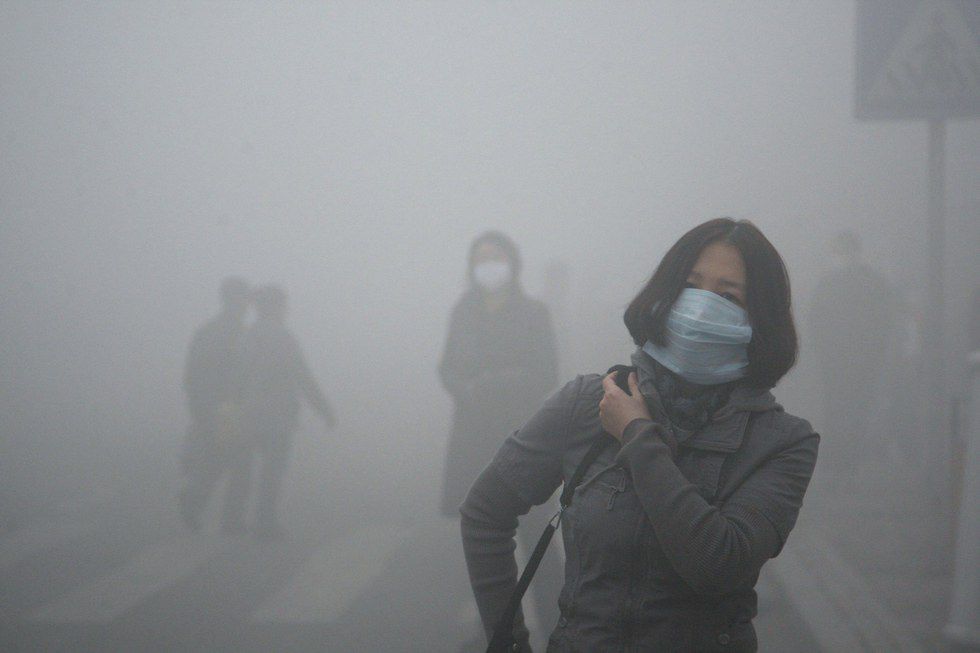In 2016, it is hard to deny the reality of climate change. We are constantly reminded about the dangers of CO2 emissions and unsustainable living. But there are some people who live behind a veil of ignorance. These people acknowledge the problems but choose to ignore them, saying things like, "sure the Maldives will be underwater, but that won't happen in New York." Your small town may not sink, but the world will suffer on the macro level when it suffers on the micro level.
While this short list may be redundant, and in no way represents the full extent of the effects of climate change, here are five ways you may be directly affected by global warming.
1. Heat-related health issues.
Heat waves can cause dehydration and heat stroke. According to the EPA, they are the most common cause of weather-related death. A heat wave in India last summer claimed over 2,330 lives. According to EM-DAT, the International Disaster Database, that heat wave was the world's fifth deadliest in history. In fact, the top five deadliest heat waves in world history all happened after 1998.
It is easy to think, "How will this affect me? Can't I just go inside or drink some water?" Sure, going inside may provide temporary sanctuary from the heat, but it comes at another cost; rising temperatures mean more air conditioning, and more air conditioning means more air pollution from power plants. Additionally, urban areas are usually hotter than their rural counterparts. This is due to mass amounts of people and businesses existing in close quarters. So if you live in a city you are going to need to spend more money and waste more energy to keep yourself cool inside while pretending it's not happening to you.
2. Say "goodbye" to land.
Increased global temperatures cause the Arctic ice sheets and glaciers to melt into the surrounding oceans, which causes the water levels to rise. The oceans are connected, so when the levels rise in the Arctic, they rise all over the world . This means countries like the Maldives, an island nation 370 miles south of India, will literally disappear. According to the BBC, many island nations are calling for a worldwide temperature cap at 1.5 degrees Celsius above pre-industrial levels. This would keep most nations above water. However, many developed nations feel more comfortable with a cap at 2 or 3 degrees Celsius above pre-industrial levels. This allows for a more liberal use of fossil fuels, and will most likely cause some island nations to sink.
OK, so the Maldives disappear...so what? I can spend a week lounging on beach chairs and sipping Bahama mamas in a sandy paradise anywhere.
While that may be true, we can't forget that the Maldives is a country which means people live there. Those people can't build houses underwater. If the oceans rise to levels that cause these islands to sink, people will be made homeless and unemployed.
The Maldives isn't the only place that is at risk. Tuvulu, Tonga, Kiribati, Bangladesh, the Nile Delta and even Miami will be some of the first places to go under.
When this happens, people will have to move. Entire cultures will be destroyed. An entire population of people will be displaced. Think about the Syrian refugee crisis going on right now, but factor in that there could be multiple countries worth of people that the rest of the world has to help. There is no precedent for this kind of apocalyptic phenomenon. What happens to those nations? What happens to the identity of the people? Do they still have a seat in the U.N.? Do they still have rights to the waters that used to be their home?
It doesn't seem like a huge problem to us, but things add up quickly. Even though it's not happening outside your bedroom window, the problem will affect you soon enough.
3. Food scarcity.
Agriculture is essential to human life. It is our source of food and contributes billions to the economy each year. Changes in C02 levels and warmer temperatures may force us to grow food in different ways and in different places than we have historically.
Weeds and other pests thrive in these new conditions which means farmers will have to spend even more money on pesticides and fungicides, causing food prices to rise for the individual. These pests will also move northward into environments that aren't used to them. This means that farmers will have to adjust accordingly, meaning fewer food options and higher prices. Additionally, as we know, an increase in the use of these chemicals will negative effects on human health.
Livestock will also suffer. Warmer temperatures introduce more unfamiliar diseases and pathogens into the animal populations. This can cause a decrease in milk production, and vulnerability to disease. Also, heat-related illnesses are not restricted to humans. Animals fall victim to heat-related health problems as well.
This is looking at the problem from an American perspective where adaptability is relatively possible. For developing nations, this is not always the case. Many third-world countries will not have the access to other agricultural tools and methods and will, therefore, suffer even greater consequences.
With climate change, the individual will experience a change in their consumption habits, and depending on their profession, may end up directly suffering even greater costs.
4. More hurricanes.
Since the 1980s, the number of level three and four hurricanes has increased drastically. Hurricane Sandy of 2012 was a level three and caused an estimated $75 billion in damage. It was surpassed only by Hurricane Katrina in 2005.
I am sure many people reading this suffered the consequences of Sandy. Homes were destroyed, power was lost and the cleanup was intense. The frequency and intensity of these storms are likely to increase with the temperature. And humans can't do very much to prevent them besides cut down on energy consumption, and we may already be too late. If things don't turn around soon, we expect a lot more Sandys coming our way.
5. Filthy air.
Last but not least: air pollution.
We have all seen those pictures of Chinese cities where the smog is so bad people have to wear masks every time they step outside. Those pictures seem so foreign and far away to us in the U.S., where emission laws are much stricter. We feel safe at a distance. We don't think that could ever happen to us in the U.S.
According to National Geographic, asthma cases are expected to jump by up to 10 percent in urban areas like New York City. No matter what the emissions laws are, people are still driving their cars unnecessary distances and leaving their lights on after they leave the room.
Also, as was stated earlier, rising temperatures allow for longer growing seasons and, therefore, longer pollen seasons. This will lead to more seasonal-based allergies and lung problems.
If you already have asthma or allergies, prepare yourself for some intense sneezing. If you have healthy lungs; hold on to them for as long as you can because it seems like air is growing more precious by the minute.
Cleary we have a problem here, and we are all part of the problem. Since we are affected as individuals, we have to fight it as individuals. There are many things we can all do in our day to day lives to help in a small way; turn your lights off, walk to class and try to be a little more conscious of the things going on around you.

